-
E-mail
Austin120521@outlook.com -
E-mail
sales@jujiuhouse.com -
Telephone
+86-17864099991 -
Telephone
+86-17854044442
- Chinese
- French
- German
- Portuguese
- Spanish
- Russian
- Japanese
- Korean
- Arabic
- Irish
- Greek
- Turkish
- Italian
- Danish
- Romanian
- Indonesian
- Czech
- Afrikaans
- Swedish
- Polish
- Basque
- Catalan
- Esperanto
- Hindi
- Lao
- Albanian
- Amharic
- Armenian
- Azerbaijani
- Belarusian
- Bengali
- Bosnian
- Bulgarian
- Cebuano
- Chichewa
- Corsican
- Croatian
- Dutch
- Estonian
- Filipino
- Finnish
- Frisian
- Galician
- Georgian
- Gujarati
- Haitian
- Hausa
- Hawaiian
- Hebrew
- Hmong
- Hungarian
- Icelandic
- Igbo
- Javanese
- Kannada
- Kazakh
- Khmer
- Kurdish
- Kyrgyz
- Latin
- Latvian
- Lithuanian
- Luxembou..
- Macedonian
- Malagasy
- Malay
- Malayalam
- Maltese
- Maori
- Marathi
- Mongolian
- Burmese
- Nepali
- Norwegian
- Pashto
- Persian
- Punjabi
- Serbian
- Sesotho
- Sinhala
- Slovak
- Slovenian
- Somali
- Samoan
- Scots Gaelic
- Shona
- Sindhi
- Sundanese
- Swahili
- Tajik
- Tamil
- Telugu
- Thai
- Ukrainian
- Urdu
- Uzbek
- Vietnamese
- Welsh
- Xhosa
- Yiddish
- Yoruba
- Zulu
- Kinyarwanda
- Tatar
- Oriya
- Turkmen
- Uyghur

China mobile expandable prefab house
Understanding the China Mobile Expandable Prefab House Market
When people often think about prefab houses in China, they imagine temporary structures or basic modular units. But that perception hardly scratches the surface of what modern, mobile expandable prefab houses offer today. These aren't just quick solutions for living space; they’re well-engineered houses capable of adjusting to various needs and environments.
Versatility at Its Best
The mobile expandable prefab house is a marvel of flexibility and sustainability. Rather than being an immobile, single-purpose unit, these structures adapt. I've seen them used in urban settings, where space is at a premium, and out in remote areas where infrastructure is scarce. They come equipped with all the basic amenities one would expect, but what really sets them apart is their adaptability.
For instance, Shandong Jujiu Integrated Housing Co., Ltd. specializes in offering a wide range of such housing solutions. Their website, jujiuhouse.com, showcases various customizable options that can be tailored for specific uses. This ensures that whether you're setting up a temporary office or a long-term residential dwelling, the house can morph to meet your needs.
What drew me initially was how this company incorporated new materials and designs to make these houses not just functional but surprisingly comfortable. The light steel frames used in their constructions are sturdy yet flexible enough to withstand environmental pressures, a vital feature in areas prone to extreme weather conditions.
Challenges and Solutions
Like every industry, the mobile expandable prefab house sector has its unique challenges. Transporting these houses, for example, requires careful planning—no small feat in a country as vast and varied as China. There's a lot that can go wrong: uneven roads, unexpected regulatory requirements, and logistical hiccups. But from what I've seen, companies like SHANDONG JUJIU INTEGRATED HOUSING CO, LTD have honed methods to navigate these pitfalls efficiently.
They handle everything from design to installation, ensuring what you get is a full package rather than a mere kit. The houses are delivered in flat-packed modules that can be quickly assembled on-site, a process that many are surprised to find can be completed in just a few hours.
On one project, a delay came from an unforeseen local ordinance requiring additional permissions, which initially put a damper on the timelines. Yet, thanks to their team’s local knowledge and responsiveness, the issue was resolved swiftly, setting the project back on course.
Technological Innovations
What's particularly exciting is the ongoing innovation in the field. The use of smart technology is transforming these units into something of a new residential category. I’ve toured some experimental models that incorporate solar panels, smart home systems, and even rainwater recycling units.
These enhancements not only make the homes more sustainable but also more appealing to a demographic increasingly concerned about environmental impact. It's a forward-thinking approach that internalizes the idea conceptualized by developers at Shandong Jujiu, taking into account user expectations and environmental considerations.
Interestingly, the integration of smart technologies is not confined to high-end models. Entry-level prefab houses are also seeing these innovations, bridging the gap between affordability and modern living.
Cost Considerations
Cost is always a consideration, especially in developing markets. Mobile expandable prefab houses are seen by many as a more economical alternative to traditional building methods — and rightly so. But initial costs can sometimes be misleading. You have to factor in transportation, assembly, and aftercare.
Shandong Jujiu Integrated Housing Co., Ltd., for instance, offers packages that include delivery and setup, which can take a significant chunk out of unexpected expenses. It’s important to ask the right questions and understand what's included in the pricing structure.
From experience, I found that sometimes “cheaper” options can backfire when unexpected costs crop up. So, long-term value should be a key metric for anyone considering this option.
The Future Outlook
Looking into the future, the trajectory of the mobile expandable prefab house industry in China seems promising. With companies like Shandong Jujiu leading initiatives in sustainable living and technological integration, it’s clear that this sector is evolving beyond its roots. Expanding urbanization and increasing environmental awareness will likely further propel the demand for such versatile living solutions.
These structures are not merely temporary respites but long-term solutions that offer durability, sustainability, and adaptability. Whether for residential, commercial, or even emergency relief purposes, the potential applications are expansive.
It’s an evolving landscape, but the future seems bright for mobile expandable prefab houses in China. As designs continue to innovate and public perception shifts, we’re likely to see these adaptable homes becoming a staple in new urban developments and beyond.
Related products
Related products
Best selling products
Best selling products-
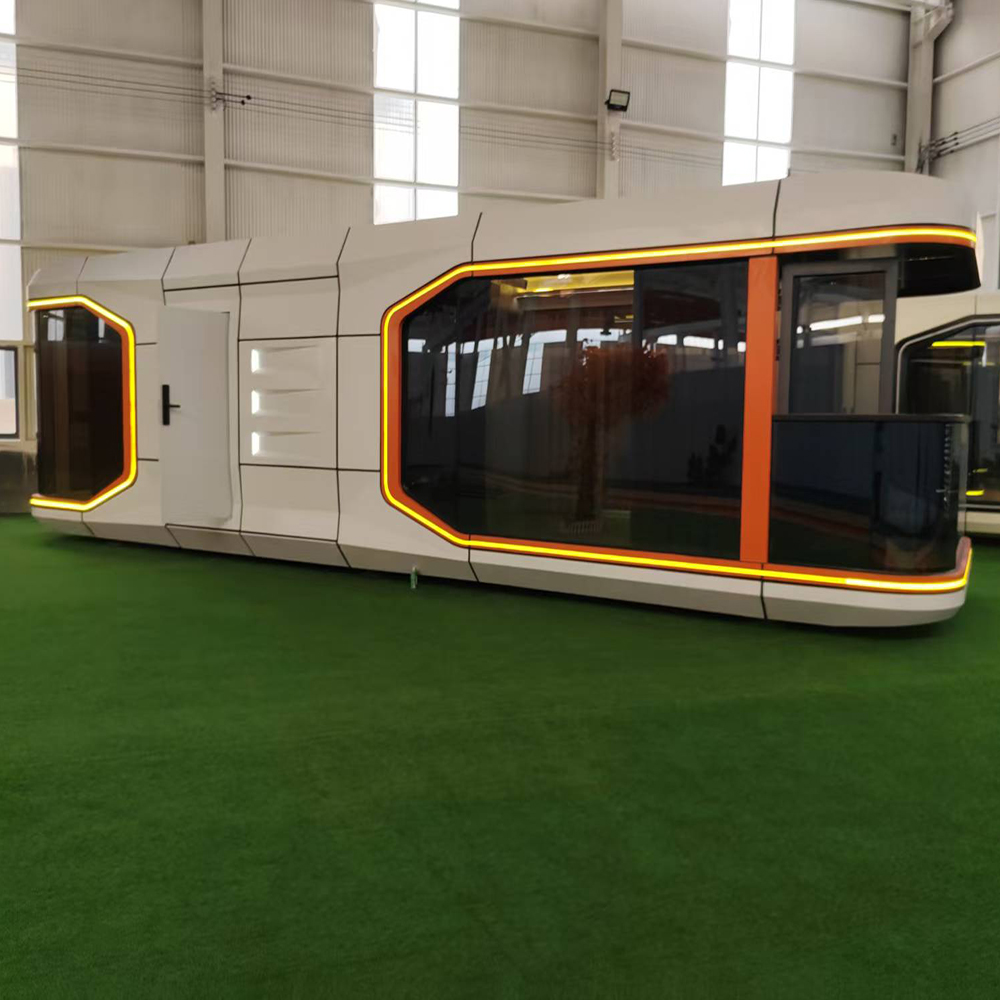 Standard Modern Camping Pod Space Prefabricated Portable Mobile Capsule Room Hotel Bathroom Prefabricated Spaceship House
Standard Modern Camping Pod Space Prefabricated Portable Mobile Capsule Room Hotel Bathroom Prefabricated Spaceship House -
 A container house with a terrace and double-wing folding design, suitable for various purposes such as offices, meeting rooms, living rooms, etc.
A container house with a terrace and double-wing folding design, suitable for various purposes such as offices, meeting rooms, living rooms, etc. -
 Good Quality Modular Homes Prefabricated House Expandable Container House 20FT Mobile Flat Roof House
Good Quality Modular Homes Prefabricated House Expandable Container House 20FT Mobile Flat Roof House -
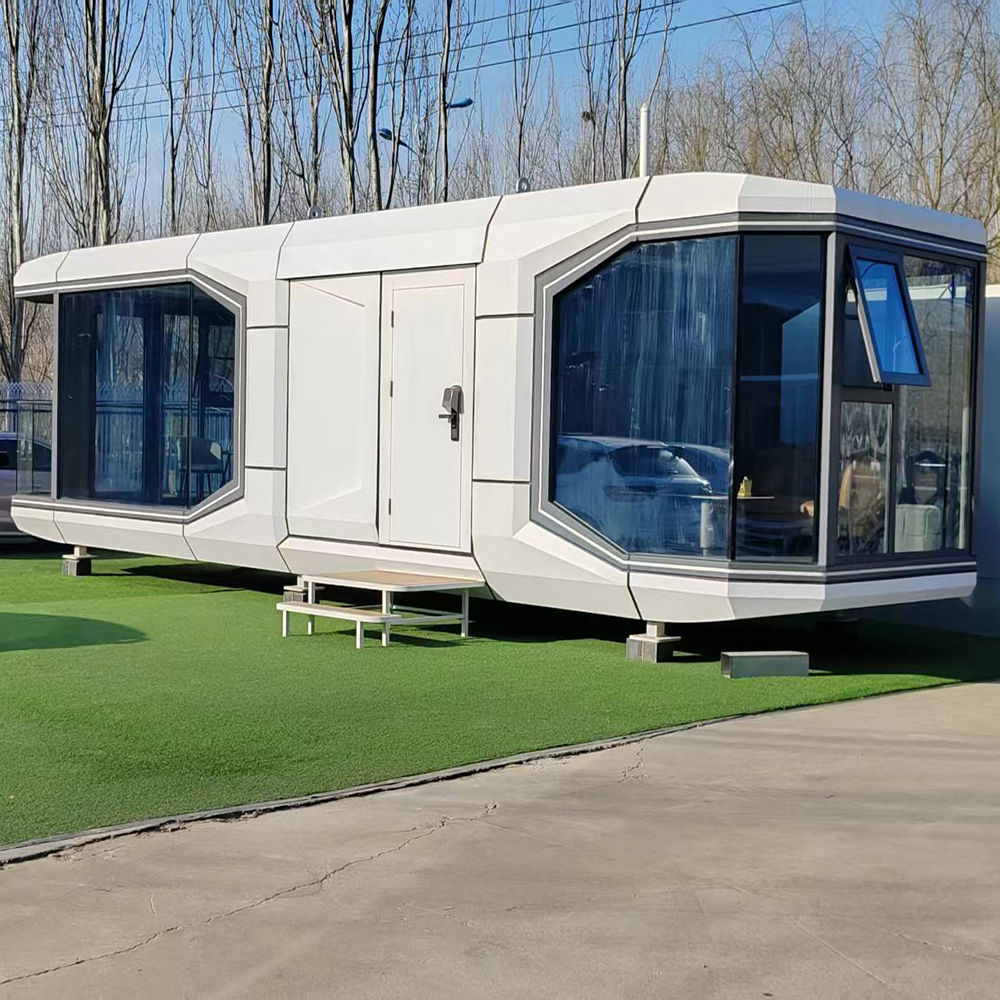 Luxury High Quality 2 Bedroom Container Home Prefabricated Steel Space Capsule for Office Shop Hotel or Outdoor House
Luxury High Quality 2 Bedroom Container Home Prefabricated Steel Space Capsule for Office Shop Hotel or Outdoor House -
 High-quality Double-wing Folding Container House with Doors and Windows, Insulated Walls, Suitable for Various Scenarios.
High-quality Double-wing Folding Container House with Doors and Windows, Insulated Walls, Suitable for Various Scenarios. -
 The foldable container house with side wing design can be quickly set up and is suitable for various environments.
The foldable container house with side wing design can be quickly set up and is suitable for various environments. -
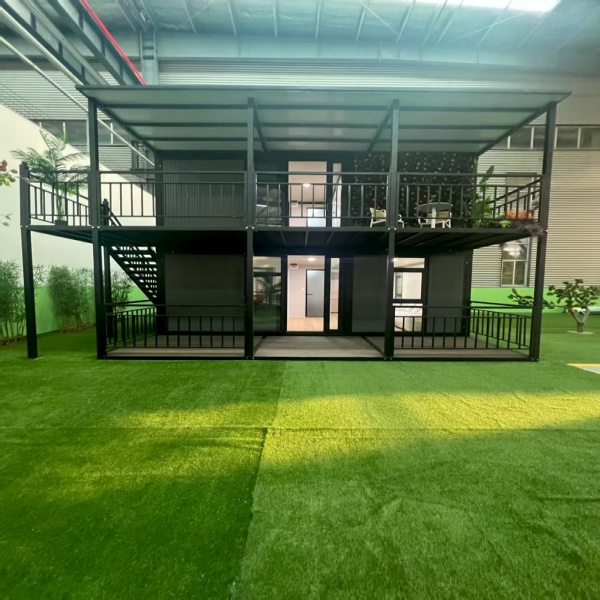 Luxury foldable two-story container houses in luxury resort hotels and villa hotels
Luxury foldable two-story container houses in luxury resort hotels and villa hotels -
 Customized Two Wing Folding Expandable Container House
Customized Two Wing Folding Expandable Container House -
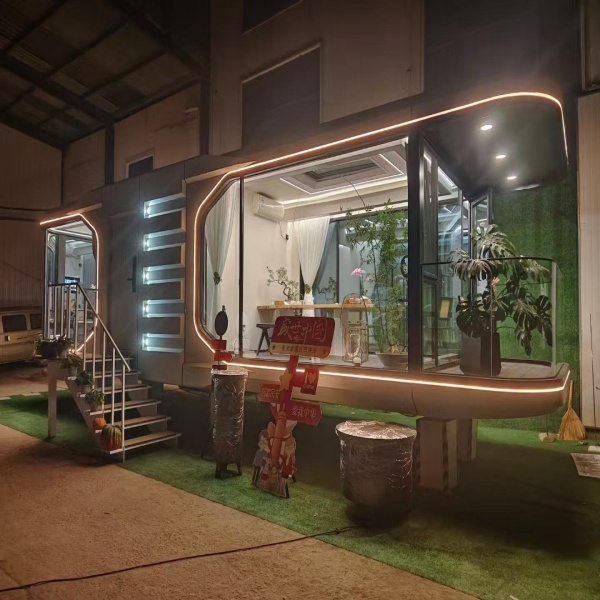 Outdoor ecological capsule rooms, luxury pods, space capsule hotel rooms, prefabricated space capsules, container houses
Outdoor ecological capsule rooms, luxury pods, space capsule hotel rooms, prefabricated space capsules, container houses -
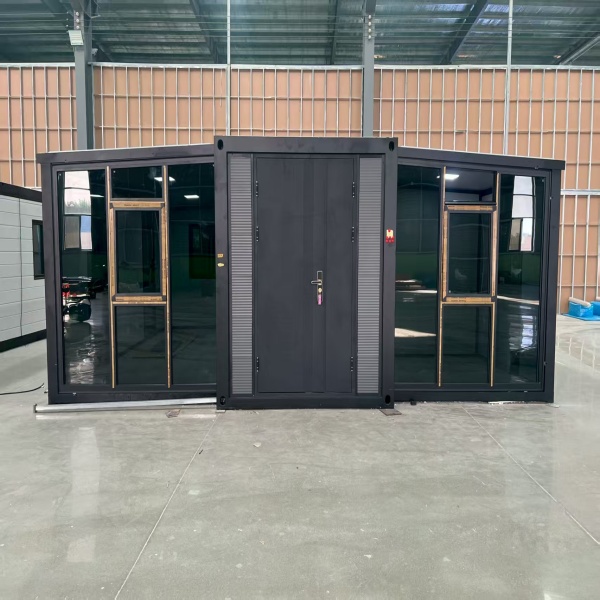 Customizable Office Mobile Home with Flat Roof and Double Wing Expansion Box, Convenient Container
Customizable Office Mobile Home with Flat Roof and Double Wing Expansion Box, Convenient Container -
 A container house with a terrace and double-wing folding design, suitable for various purposes such as offices, meeting rooms, living rooms, etc.
A container house with a terrace and double-wing folding design, suitable for various purposes such as offices, meeting rooms, living rooms, etc. -
 Easy Install Customized Detachable Container Homes Extendable House Prefab 2 Floors Expandable Container House
Easy Install Customized Detachable Container Homes Extendable House Prefab 2 Floors Expandable Container House
Related search
Related search- China apple cabin on the creek
- China fold out houses from boxabl
- expandable container house price
- China space capsule homes
- expandable container house with solar energy
- China collapsible container house
- foldable container house price
- China fold out shipping container house
- Buy wholesale expandable container house 40ft luxury
- folding houses










